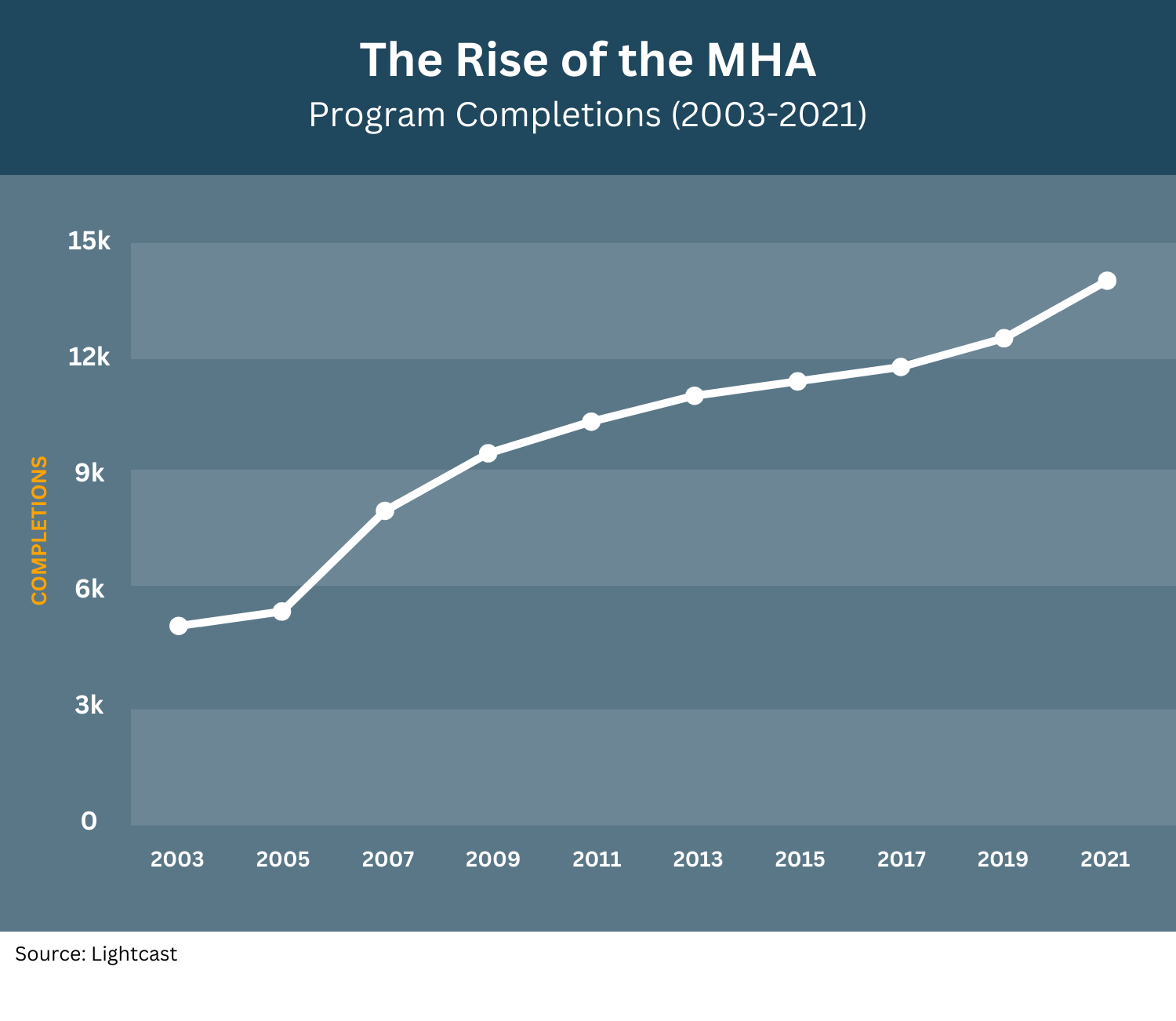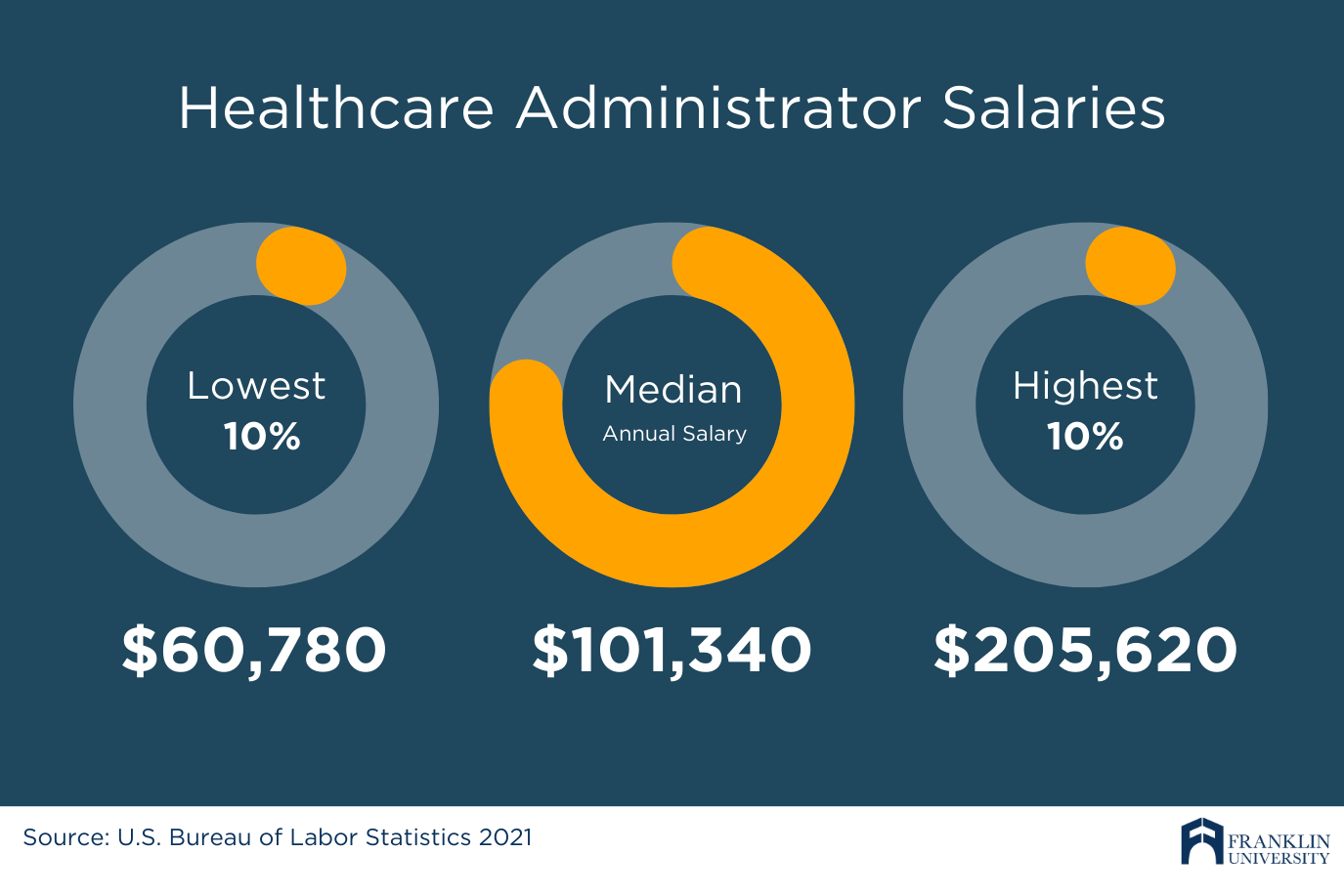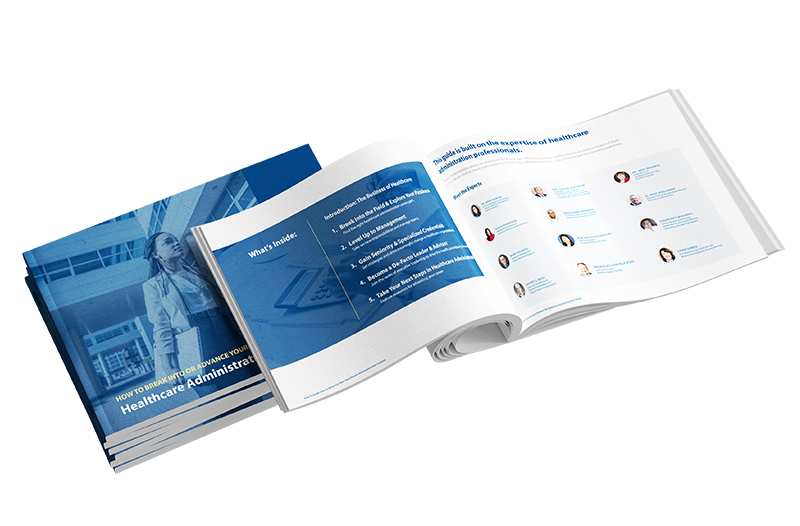Request Information
We're Sorry
There was an unexpected error with the form (your web browser was unable to retrieve some required data from our servers). This kind of error may occur if you have temporarily lost your internet connection. If you're able to verify that your internet connection is stable and the error persists, the Franklin University Help Desk is available to assist you at helpdesk@franklin.edu, 614.947.6682 (local), or 1.866.435.7006 (toll free).
Just a moment while we process your submission.

Is a Master's in Healthcare Administration Worth It?
With the rapid pace of technology, changing regulations and a growing national conversation, there’s never been a bigger need for innovative healthcare leaders than now.
“Healthcare administrators are being asked to do more with less,” says Dr. Leslie Mathew, chair of Franklin University’s Master of Healthcare Administration (MHA) program. “They’re tasked by organizations to facilitate a higher level of care at a lower than ever cost. This is creating a need for strategic-thinking, problem-solving professionals who have a deep understanding of finance.”
What Is an MHA?
An MHA is a specialized degree designed to develop strategic-minded leaders within the context of healthcare.
Although an MHA is an investment of time, money and effort, an MHA can help you develop the skills needed to innovatively lead in an increasingly complex field.
5 Good Reasons to Earn an MHA
It can be challenging to know for certain if an MHA is right for you. Here’s a round up of five reasons to earn an MHA, each of which could help you decide if a master’s in healthcare administration is worth it.
1. You’re looking to stay competitive and increase your job prospects.
Healthcare administration is a career on the rise. According to the Bureau of Labor Statistics (BLS) the job outlook to 2031 for medical and health services managers is exploding at a rate of 28%; much faster than the 3% growth rate for all occupations.
With this trajectory, it’s no surprise that master’s-level education for healthcare administrators is escalating, too.
According to labor analytics firm, Lightcast, master's degree completions for health and medical administrative services increased 90.7% from 2012 to 2021. Online master’s degree programs have seen a whopping 289% increase during this same time period.

Advance your career in Healthcare Administration while you advance patient care. Download your free career guide.
Earning a master’s in healthcare administration can have an immediate impact on your career. From Day One of your MHA program, you’ll learn skills you can use in your day-to-day job responsibilities, as you also prepare you to take on brand-new challenges.
Whether you want to move to another department, rise through the ranks, or change organizations altogether, an MHA can prepare you to take the next step in your career.
Keep in mind that when you interview for new positions, an MHA is a key differentiator among a field of otherwise similarly qualified candidates. This is especially true when you’re competing for a position against professionals with a more generalized education, such as an MBA.
While these professionals have a master’s-level education in strategic management, by its very nature, the MBA lacks the specific healthcare application of an MHA. Not only can an MHA help you increase healthcare efficiencies and cost-effectiveness, it’s also designed to help you drive patient outcome improvements.
2. You’d like to develop your healthcare leadership expertise.
Many healthcare administrators focus in a specialized area like finance, operations, emergency services or cardiac care. If you’re a professional who wants to advance to management, leadership or executive levels, it’s likely you’ll need more than specialized expertise–you’ll need to understand the entire continuum of care.
A master’s in healthcare administration can help. With an MHA you’ll gain the breadth of knowledge needed to address operational challenges at all levels of healthcare.
With the right MHA degree program, you’ll dig into a wide variety of topics, all related to the business of healthcare, including:
- Law and ethics
- Management strategies and implementation
- Data, analysis and information governance
- Finance and accounting
- Operations and supply chain
From the laws governing healthcare practices to how healthcare is delivered, managed and billed, an MHA degree can give you essential knowledge in every major area of healthcare operations. That means you’ll be better prepared to collaborate across departments and, thereby, create meaningful change within the healthcare system.
3. You’re looking to challenge yourself by adding new skills.
In addition to technical knowledge of the healthcare industry, an MHA can help you develop vital leadership skills. Through your coursework, team assignments and a professional networking of other healthcare professionals, you’ll be consistently challenged to grow.
Here’s a look at some of the many skills you’ll develop in an accredited online MHA degree program:
Big picture thinking
As a healthcare administrator, you cannot isolate challenges; they’re much too interrelated, causing ripple effects across the organization. As a leader, you need to be prepared to think and act strategically to create positive short- and long-term impacts. An MHA is your opportunity to grow and practice new skills as you gain a deeper understanding of the complexity of the inner workings of a healthcare organization.
Critical problem solving
Every decision a healthcare administrator makes has a profound impact on the very lives of human beings. It’s not a responsibility to take lightly, of course. Which is why an MHA is so invaluable. With the right MHA degree program, you’ll examine and evaluate problems in a real-world context and develop innovative solutions to overcome these issues.
Adaptability and flexibility
Healthcare is one of those always-changing, rapidly evolving industries. An MHA can equip you with the skills and tools needed to confidently and successfully navigate uncertainty. You’ll learn how to pivot in the face of new regulations, changing policies and shifting procedures, all while helping maintain a high standard of patient care.
Teamwork and leadership
Every day is a team effort at a healthcare organization. An MHA can help you develop a diverse set of skills–skills needed to solve large-scale challenges while also bringing out the best in those around you.
“Organizations want people who are agents of change, who can be innovative and work with moving targets,” says Mathew. “An MHA instills skills to create leaders who are ready for what’s happening today, as well as tomorrow.”
4. You’re ready to deepen your professional network.
An MHA can increase your access to other professionals in the field, opening up new networking opportunities and avenues for career advancement.
For example, at Franklin University, students in the MHA program may choose to become members of the American College of Healthcare Executives (ACHE), the pre-eminent professional association for healthcare administrators. Through this association, Franklin’s MHA students have the opportunity to job shadow in the C-Suite and attend conferences and networking opportunities on a national scale.
“With 80+ chapters and 5,000 members nationwide, ACHE membership provides a huge networking opportunity,” says Dr. Mathew. “Our students appreciate being able to attend professional events and meetings where they can connect with other successful healthcare professionals.”
5. You want to increase your earnings potential.
A master’s in healthcare administration also can prepare you to advance faster–and to higher levels. This, of course, can open doors to pretty significant salary increases, both now and in the future.
According to the BLS, which includes healthcare administrators within the designation of medical and health services managers, the annual wage ranges from a low of $60,780 to a median average of $101,340, with the top 10% of medical and health services managers earning more than $205,620.
You can help give yourself a competitive advantage for these top-paying, executive-level roles by earning a master’s in healthcare administration degree.

Should You Get an MHA?
Only you can decide if an MHA is right for you, but first consider this:
- If you want to grow as a leader, an MHA probably is worth it.
- If you want to help create an advanced healthcare system, an MHA is probably worth it.
- If you want to solve healthcare business problems and inspire high-quality healthcare, an MHA is probably worth it.
“When people think of healthcare administration they immediately think of a hospital,” says Dr. Mathew, “but opportunities exist along the entire continuum of care. From health systems to long-term care facilities to physicians offices to government agencies, these organizations are undergoing change–and they all need qualified healthcare administrators.”
Getting a master’s in healthcare administration can be extremely rewarding for you and your career. The key to ensuring your success is finding the right program. So, if you’re a mid-career or working professional, make sure to find an MHA degree program that includes flexible, online coursework in a real-world context.
And remember, leaders who differentiate themselves with a Master of Healthcare Administration are going to be first in line for the best jobs in healthcare.





